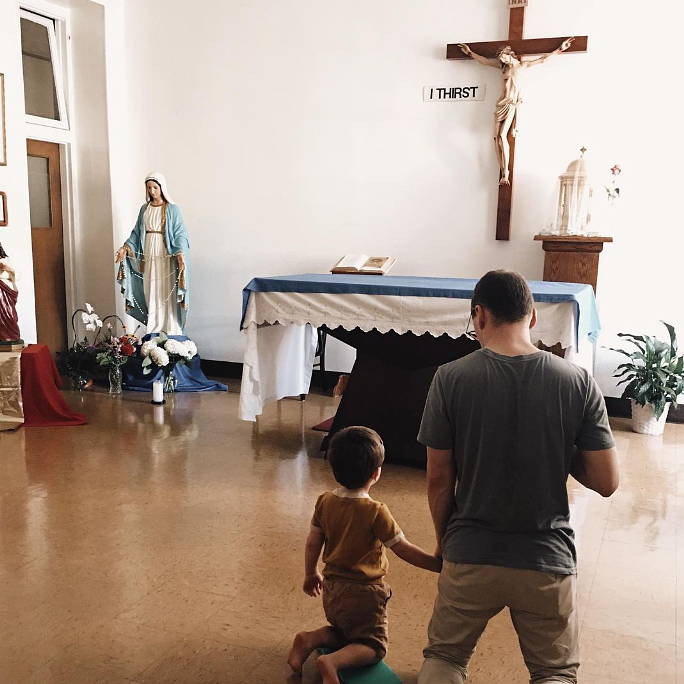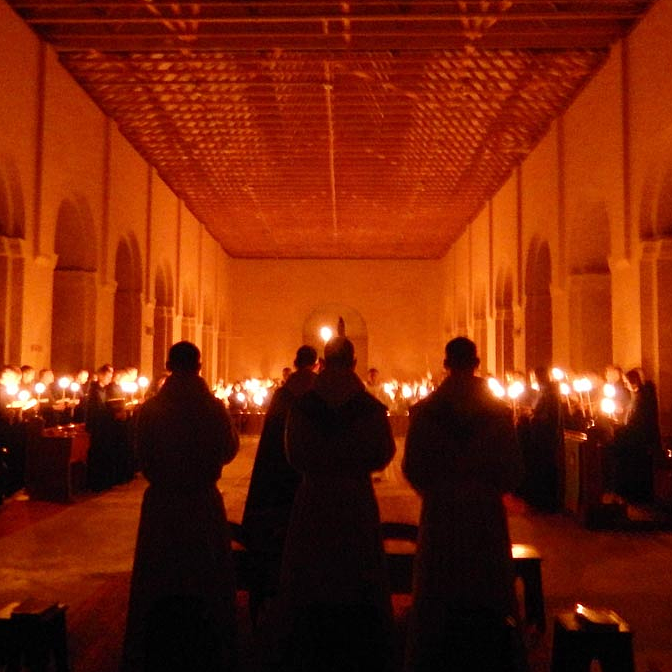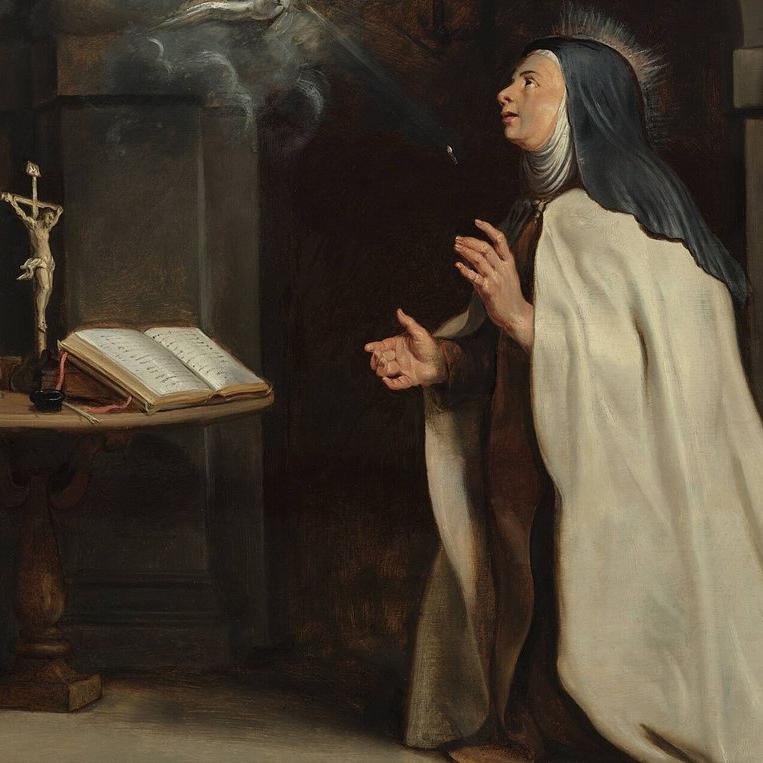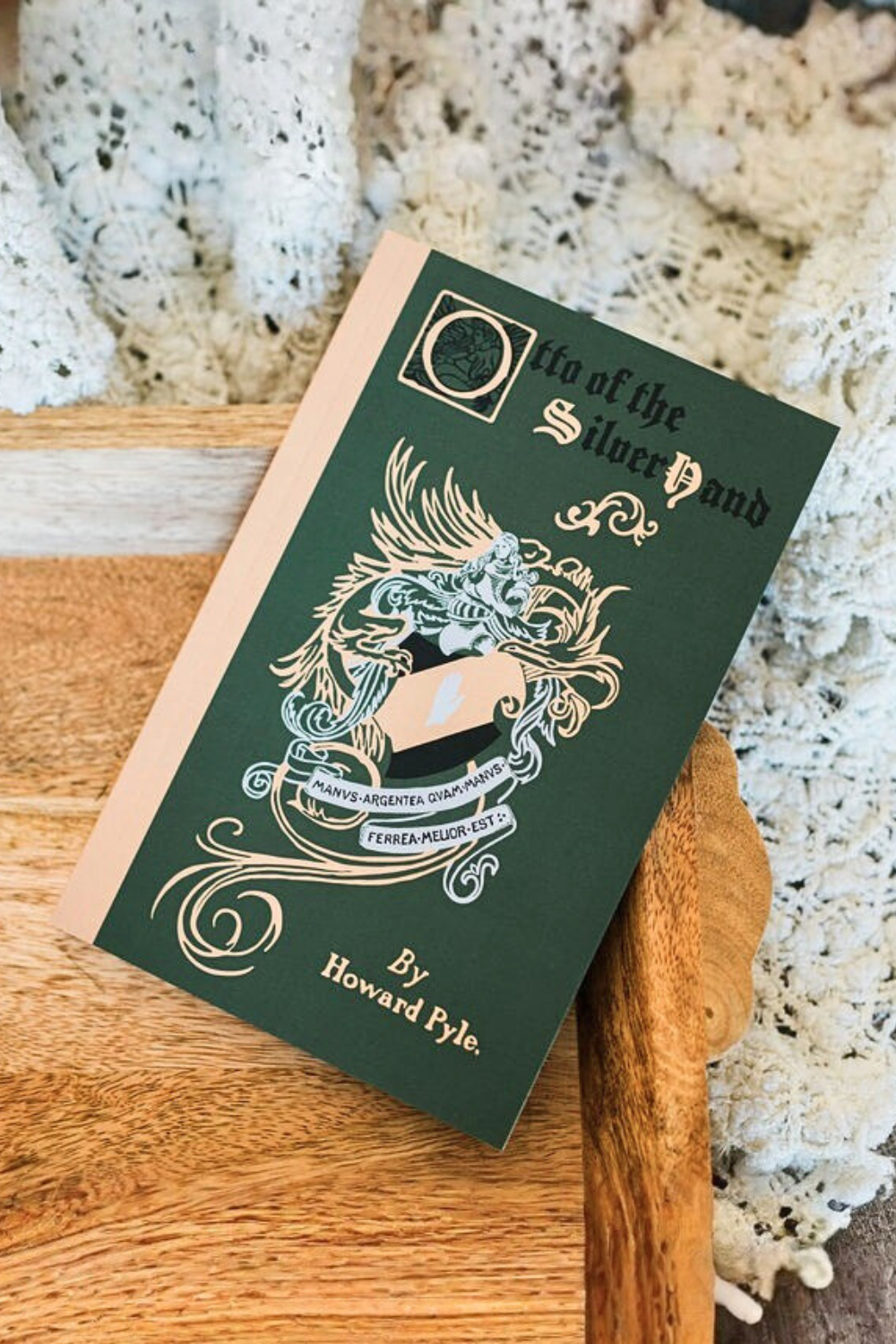Excerpt from Chastity: The Angelic Virtue
“Father Casey, I’ve discovered the besetting sin of Catholics,” announced Father McMahon. “I had long suspected what it was — now I know.”
“What is it — combativeness?”
“Quite the contrary. Spiritual discouragement, a species of despair.”
Father Casey turned and scrutinized the younger priest who sat dejectedly huddled in the big armchair gloomily eyeing the dying embers.
“My dear Father McMahon,” he said, “methinks it is not so much the sheep that are discouraged, as the shepherd. Come, get it out of your system. What image has been shattered? What castle has fallen?”
“I have good reason to be discouraged,” returned Father McMahon, “when I see the most promising of my young people give up the struggle, stop trying to avoid sin, and helplessly declare that it can’t be done.”
“What does God give them a pastor for but to help them through precisely such a crisis?”
“I have tried everything, but they say it is no use — that they are too weak and the temptations are too strong.”
“Of course you recommended that sweet and consoling motive of confidence — devotion to the Blessed Virgin Mary. Our Divine Redeemer foresaw just how poor sinners would feel after repeatedly breaking all their good resolutions and weakly yielding to temptation. Hence He made His Own Mother the refuge of sinners so that the thought of this motherly advocate would prevent them from falling into despair. Surely you recommended devotion to her.”
“Of course I did. But even that means has failed.”
“What devotion did you point out in particular and insist on their practicing?”
“Oh, I don’t know that I stressed any definite devotion. I urged them to be devout to the Blessed Mother and put their trust in her and pray to her in the time of temptation. But as to insisting on a particular devotion — no, I did not. I believe in giving them liberty of choice in such matters.”
“If you were a physician,” said Father Casey, “and you were called upon to treat a case of pneumonia, I suppose you would tell the patient to take some kind of medicine, and then you would leave him freedom of choice to select the medicine that best pleased him.”
“Well, I have sometimes suggested the rosary.”
“Did they say it?”
“The good ones did. Those who needed it most made a few desultory attempts, and then abandoned it. They complained of lack of time.”
“A lame excuse indeed. Anybody that is really in earnest about saving his soul can easily find the eight or ten minutes daily required to recite the rosary. However, we physicians of the soul must, like physicians of the body, take patients as we find them. If we cannot get them to do the thing we prescribe, we must prescribe the thing we can get them to do. Did you never try the devotion of the three Hail Mary’s?”
“I have mentioned it sometimes but without insisting upon it. It never appealed to me particularly — it is rather insignificant.”
“My boy, St. Alphonsus Liguori had about as wide experience in dealing with souls as any man that ever lived. He did not think the devotion of the three Hail Mary’s insignificant. In fact, he says that he always recommended it to persons addicted to sins against the holy virtue, and that he never knew it to fail.”
“With all due respect to St. Alphonsus Liguori and his wide experience, I will say that I have known it to fail — and fail frequently.”
“I thought you said a moment ago that you never seriously recommended this devotion to those who sought counsel from you.”
“True, but other priests had recommended it to them, and so I had a chance to study its effects, and see it fail.”
“Are you at liberty to enumerate the details of some of these cases?”
“Certainly. There was a young man I knew well; he often came to me for advice. He was good at heart, though, undoubtedly, a little weak. Well, this young man had got into evil ways but was now heartily disgusted with himself and wanted to reform. He attended a mission given by a Redemptorist Father who made him promise to practice that devotion of St. Alphonsus, the three Hail Mary’s. He must have been really in earnest, for he kept his promise faithfully. But at the end of five years he was just as bad as he had been at the beginning.”
“Yes? And at the end of the next five years?”
“What do you mean, Father Casey?”
“I asked, what was his condition after practicing the devotion the next five years.”
“Oh, he didn’t practice it another five years. He thought it was doing him no good, and so he got discouraged and quit. But even at that, I think he had given it a fair tryout.”
“Do you call that a refutation of the statement of St. Alphonsus? St. Alphonsus says that whoever practices this devotion faithfully will be cured; you say you know a case where a man practiced it until he got discouraged and quit, and he was not cured. Do you call that a refutation?”
“Well, how long must one keep up the devotion?”
“Until God cures him. He cannot set down time limits for God. He must practice the devotion and persevere in practicing it. If he does so, God will surely cure him.”
“That just reminds me of the case of a young man who practiced the devotion until he died, without being cured of his evil habit. He couldn’t do more than that. You must admit that that is valid proof.”
“The young man, you say, died a bad death?”
“No, I did not say that. On the contrary, he repented and died a most edifying death. But up to the time of his last illness he had made no progress whatever, despite the fact that he practiced the devotion so faithfully.”
“It seems to me that a good death is the greatest grace seated can receive,” said Father Casey.
“Why, certainly,” replied Father McMahon.
“Then how can you say that he found the devotion a failure? It was most likely due to his fidelity in practicing this devotion that God gave him the grace to repent in his last days, despite his repeated sins. Furthermore, when you cite a practical case and, from it, try to prove that this devotion fails in its effects, you must always remember that the devotion is a devotion. It does not consist in a mere mechanical repetition of the words, just as though they formed a magic talisman which can work marvels. Before one can say that he is practicing this devotion, he must be honestly resolved to try his best to avoid sin and then he must turn to God and the Blessed Virgin and offer this prayer to them with full confidence that they will give him the strength necessary to keep his resolution.”
“Father Casey, if this devotion does what you claim for it, then surely we should do all in our power to propagate it. I must confess that it is rather hazy to me. In just what does the devotion consist, and how did it originate?”
“It consists,” explained Father Casey, “in reciting, morning and evening, on bended knees, three Hail Mary’s, adding after each Hail Mary, the invocation: By your holy and immaculate conception, O Mary, make my body pure and my soul holy. The three Hail Mary’s are offered to the three Persons of the Most Holy Trinity in thanksgiving for the spotless purity which they bestowed upon the Blessed Virgin Mary. The invocation is added to secure her powerful assistance in our efforts to avoid every sin. It should be the first devotion on rising each morning and the last before retiring at night. Thus every day and every night is set in a golden setting, framed in a precious frame — the three Hail Mary’s.








